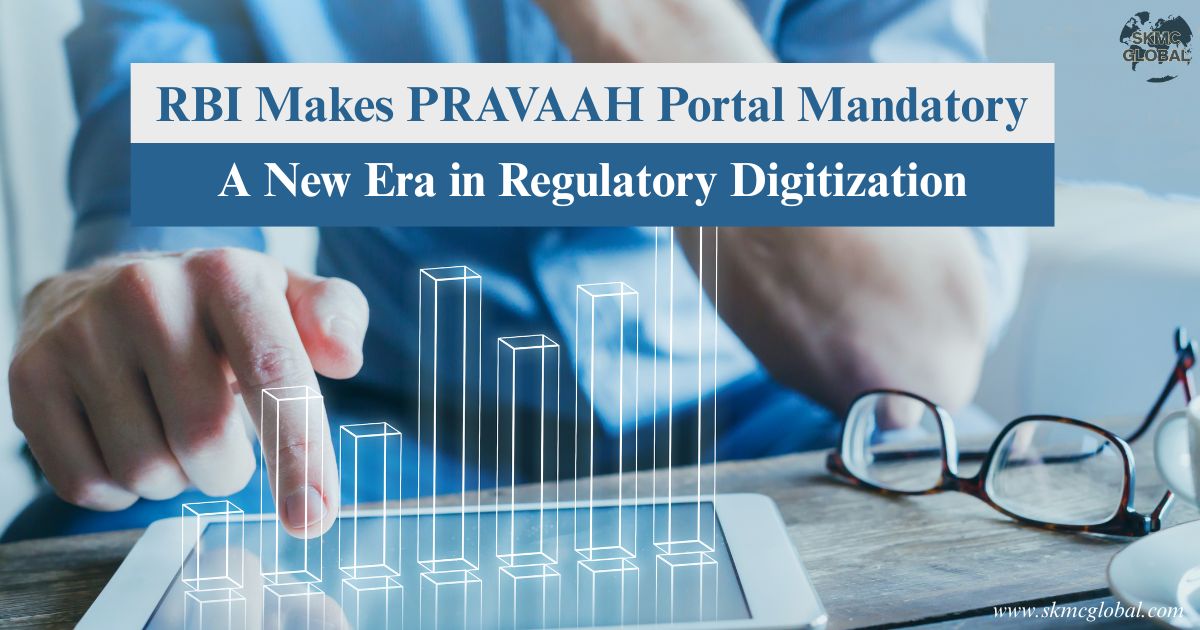
Whether Loans & Borrowings are really Deposits Under Companies Act, 2013?
Indian business houses, such a distinction between Loans and borrowings would be as easy as eating a pie. You require money, you go to a financier, and you get money. That easy as it sounds? Well, maybe not. With the Companies Act, 2013 in case of loans and borrowings hanging over their heads, what for you would be an easy loan would in fact be a "deposit," which would create a series of tedious compliances, huge penalties, and even legal issues. Loans and borrowings is wide terminology to be discussed.
Lets, try to understand in detail about loans and borrowings. This is frequently misunderstood, leading to accidental non-compliance on the part of startups and private businesses. Whether your money qualifies as a "deposit" or actually still a "loan" isn't legal mumbo jumbo; In loans and borrowings it's a basic financial compliance matter all Indian businesses must deal with.
In the topic of Loans and borrowing, we will uncover the veil, mystifying the fine waltz of borrowing and loans and "deposits" under the Companies Act, 2013, and recent controversy and implications.
1. The Broad Definition of "Deposit" under Companies Act, 2013: A Trap for the Unwary
- We begin with the substance of the issue: Section 2(31) of the Companies Act, 2013. It gives the definition of "deposit" in general terms such that it becomes: "includes any receipt of money by way of deposit or loan or in any other manner by a company, but does not include such types of amount as may be prescribed."
- In loans and borrowings broad definition is meaningful. Unlike the Companies Act, 1956, which had employed "deposit" when clearly it was referring to money received from the public, the 2013 Act did so technically to include "loans" and "money in any other form." What this would imply is that unless specifically excluded, nearly any money received by a company, even if termed a "loan" pursuant to an agreement, would qualify as a deposit. It’s one of the important point to be discussed in loans and borrowings.
2. The Critical "Exclusion List": What is NOT a Deposit?
Loans and borrowings is liberal definition of the term, operational connotation of the term "deposit" to a large extent depends upon its "exclusion list" as defined under Rule 2(1)(c) of the Companies (Acceptance of Deposits) Rules, 2014. These are the same kinds of loans and borrowings and other receptions which, although there is liberal definition under the Act, are beyond the ambit of being deposits and thus fall outside the strict rope of deposit compliance regime of companies.
Some of the most prevalent and significant exclusions in loans and borrowings are:
- Government Funds: Any amount which is received from the Central Government or a State Government, or any amount whose repayment is guaranteed by them, or by a statutory/local authority.
- Foreign Sources: Amounts received under foreign governments, foreign/international banks, multilateral financial institutions (such as IFC, ADB), or foreign bodies corporate (subject to FEMA regulations).
- Bank Loans: Any sum borrowed as a loan or financial aid from a bank company, State Bank of India or its subsidiary banks, or notified public sector financial institutions by the Central Government.
- Inter-Corporate Loans: Amount borrowed as loans from any other company. It is a very broad and common exemption where companies can lend money to other companies with unlimited deposits.
- Share Application Money: Amount received on application for any securities, share application money as well, in case of issue within 60 days of the date of receipt. If not allocated within 60 days and also not refundable within 15 days thereof, it is regarded as a deposit.
- Debentures: Amount of money raised by issue of debentures or bonds that are
- Secured by a first charge (or pari passu) on property (not intangible property) and do not exceed in value the market value of such property.
- Convertible into equity shares of the company within a period of 10 years (previously 5 years, one of the most important changes).
- Unlisted debentures that are listed on a recognised stock exchange according to the SEBI regulations.
- The Director's Loans subject to conditions: Amounts advanced to or received by a person who, at the date of receipt, was a director of the company, where the director delivers in writing a confirmation that the amount does not come out of money borrowed or raised by him on loan or borrowings or deposits from other persons. This provision is applicable in private companies.
- Employee Security Deposits: Interest-free amounts obtained from an employee not exceeding his salary for a year under a contract of employment.
- Promoter's Unsecured Loans: Amounts obtained by promoters as unsecured loans and borrowings if required by a lending financial institution or bank, subject to specified conditions (e.g., from the promoters themselves or their family members, and exemption will practically hold good only till the repayment of the institutional advance).
- Trade Advances/Business Advances: Business receipts as advance for goods or services provided such advance is utilized against service/provision within 365 days. (Important note: Where receiving company does not receive approval for goods/services, receipt is considered as a deposit after 15 days from due date for its return.)
- Specific Fund Amounts: The quantum that goes directly into Alternative Investment Funds (AIFs), Domestic Venture Capital Funds, Infrastructure Investment Trusts (InvITs), Real Estate Investment Trusts (REITs), and SEBI-listed Mutual Funds.
3. The Squeezed Regime of "Deposits": Why Exclusions Matter:
Unless a receipt of money falls within one of the mandatory exclusions, then it is a "deposit" for the purposes of the Companies Act, 2013. This will invoke an entire set of stringent compliance provisions, making it much more complicated and forbidding than normal borrowing and taking of loans:
- Public exclusion: No. No general company shall accept, renew, or solicit public deposits except as provided expressly. Only "eligible public companies" (high net worth/high turnover) can accept public deposits, including that on stringent conditions.
- Members' acceptance: Companies (private/public) may accept deposits from members (shareholders) on stringent conditions under Section 73(2) of the Companies Act, 2013, such as: A passing of a special resolution in general meeting.
- Issuance of a circular to members along with financial data and credit rating.
- Filing of the circular with Registrar of Companies (ROC).
- Maintenance of a "Deposit Repayment Reserve Account" (DRRA) by investing not less than 20% of maturing deposits.
- Obtaining a credit rating by a renowned agency.
- Deposit security (if unsecured, to be disclosed).
- Amount restrictions: Private companies are usually able to utilise 100% of their paid-up capital, free reserves, and securities premium account from members. Tighter restrictions apply in qualifying public companies.
- Time restrictions: Deposits should not usually be repayable on demand or within less than 6 months, or more than 36 months, from the date of acceptance.
- Register of Deposits: Statutory maintenance of a register with full details of all deposits.
- Annual Return (Form DPT-3): All such companies to which the provisions are applicable must file a return of deposits (Form DPT-3) on or before the year ended June 30th for the balance as of March 31st. The form is significant since it is used to report actual deposits and also transaction information which are not deposits.
4. Penal Consequences: The Cost of Non-Compliance
- The Companies Act, 2013 imposes severe penalties on non-compliance of deposit rules, which refers to the severe nature of these provisions.
- In case of the Company: At least INR 1 Crore or double the value of the deposit taken (lower of the two), extendable up to INR 10 Crores. The company will also be penalized for return of deposits along with interest.
- For Defaulting Officers: Imprisonment for a period of seven years maximum, or fine not less than INR 25 Lakhs and extendible to INR 2 Crores, or both.
- Personal Accountability: If deposits are found to have been fraudulently induced, all officers involved can be held responsible personally.
These harsh penalties reflect why it is not a theoretical exercise to achieve the thin line among loans and borrowing and deposits but a real risk management imperative.
5. Emerging Trends and Key Insights: Staying Proactive
The distinction line between deposits, loans and borrowing and and loans is a sensitive matter of contention between corporate leaders, lawyers, and the Ministry of Corporate Affairs (MCA). Considerations and recent trends include:
- Declarations of Diligent Director: Directors' loans exemption (Rule 2(1)(c)(viii)) is the most prevalent under the spotlight. Directors need to exercise caution to declare on making the payment that the money is not out of their own loans and borrowing or deposit. In case of its absence, the amount will be considered to be a deposit with all the consequential compliance and penalty implications.
- Appropriation of Advances (365-Day Rule): 365-day rule for proper advances on goods/services is a most prevalent pitfall. In the absence of relativization of advances within this period, advances will naturally fall within the definition of deposits. Organizations with prolonged project lengths or complex supply chains need to have robust internal controls to track and manage advances so as not to default to non-compliance. There have been informal debates within certain expert committees regarding whether all profits achieved in the course of normal business, albeit in excess of 365 days, need to be exempted for all time if there is a valid written agreement and they are actually related to trade. However, up to this point in time, the 365-day rule applies to a large degree, the sole exception being a proceeding in a court of law.
- Startups' Convertible Notes: Addition of "convertible notes" for startups (one tranche of INR 25 lakhs or more, repayable at option or convertible into equity within a horizon of 10 years) has introduced a new class of financing vehicle clearly outside the definition scope of "deposit." This is a relief to early-stage companies which raise money.
- Form DPT-3 – The Annual Health Check: A company is not supposed to have any transaction that comes in the "deposit" category but does have outstanding balances which cannot be labeled as a deposit (i.e., are actual loans and borrowings come in the exclusion list), so Loans and borrowings needs to file the Form DPT-3 on yearly basis. This form is an important reporting tool for all outstanding cash receipt or loans which are not accounted as deposits as of March 31st each year. The MCA at times also offers relaxations in filing fees for delayed filing of DPT-3, indicating just how important this form is and, at times, the challenge companies experience in being punctual in compliance.
- Private Company Exemptions and Conditions: Private companies do enjoy some relief (e.g., higher member deposit limits, and some relief from conditions of Section 73(2) if they meet certain borrowing limits), but they still need to meet these conditions. Cutting borrowing capacity or becoming subsidiary/associate company of another company may exclude these relief.
- The intention of the parties: Though legal definition and excluded list take precedence, courts and tribunals in complex cases may also seek out the intention of the parties when the money was received. A well-written agreement with clear terms for the nature of the transaction as a loan and with express terms of repayment and interest may serve as evidential proof. This cannot, however, override statutory definitions or statutory terms.
The SKMC Global Insight for Your Company:
Loans and borrowings are either "deposits" under the Companies Act, 2013, or they are not. At least that seems on the face of it. It is a legal labyrinth where one'stumble' will cause irreparable harm to the company and directors. Simple labelling of a transaction as a "loan" in your books and contracts is insufficient. The true test is in whether it dutifully adheres to the exclusions specified under the Companies (Acceptance of Deposits) Rules, 2014.
In case of capital-raising companies, and particularly from non-institutional investors or through intra-corporate trades, a futuristic and prudent attitude towards such provisions is required. It's not just about remaining penalty-free; it's about being good corporate governance and cash fit.
Don't leave your company's compliance hanging in the air. For professional guidance on loans and borrowings, rules on deposits, and general compliance under the Companies Act, 2013, log on to www.skmcglobal.com. Our finance and legal experts can walk you through these issues with ease.
Recent Posts
-
 The Step-by-Step NGO Registration Process in India...
Jan 17,2026
The Step-by-Step NGO Registration Process in India...
Jan 17,2026
-
 Secretarial Audit for Unlisted and Private Compani...
Dec 19,2025
Secretarial Audit for Unlisted and Private Compani...
Dec 19,2025
-
 How to Get CTE and CTO under Environmental Laws in...
Nov 27,2025
How to Get CTE and CTO under Environmental Laws in...
Nov 27,2025
-
 Step by Step guide for appointment of Independent ...
Nov 06,2025
Step by Step guide for appointment of Independent ...
Nov 06,2025
-
 Liaison Office vs Branch Office: A comparative ana...
Sep 02,2025
Liaison Office vs Branch Office: A comparative ana...
Sep 02,2025
-
 Role of Shareholders Agreement in Startups and Inv...
Aug 30,2025
Role of Shareholders Agreement in Startups and Inv...
Aug 30,2025
-
 Setting Up a Wholly Owned Subsidiary (WOS) in Indi...
Aug 12,2025
Setting Up a Wholly Owned Subsidiary (WOS) in Indi...
Aug 12,2025
-
 Arbitration v/s Litigation in India...
Aug 05,2025
Arbitration v/s Litigation in India...
Aug 05,2025
-
 Declaration of Dividend under Companies Act, 2013...
Aug 02,2025
Declaration of Dividend under Companies Act, 2013...
Aug 02,2025
-
 What is MSME Form 1 and how it can be filed?...
Aug 01,2025
What is MSME Form 1 and how it can be filed?...
Aug 01,2025
-
 What is CSR and how to compute the contribution am...
Jul 31,2025
What is CSR and how to compute the contribution am...
Jul 31,2025
-
 Process for removal of company auditor under Compa...
Jul 31,2025
Process for removal of company auditor under Compa...
Jul 31,2025
-
 What is SBO Compliance and when it is needed?...
Jul 29,2025
What is SBO Compliance and when it is needed?...
Jul 29,2025
-
 Role of Key Management Personnel and their appoint...
Jul 28,2025
Role of Key Management Personnel and their appoint...
Jul 28,2025
-
 Registering a Partnership Firm in India...
Jul 28,2025
Registering a Partnership Firm in India...
Jul 28,2025
-
 Procedure to strike off a company...
Jul 28,2025
Procedure to strike off a company...
Jul 28,2025
-
 sox and internal control...
Jul 17,2025
sox and internal control...
Jul 17,2025
-
 ICFR Applicability as per the Companies Act, 2013...
Jul 15,2025
ICFR Applicability as per the Companies Act, 2013...
Jul 15,2025
-
 Concept of Sweat Equity Shares and its uses...
Jun 25,2025
Concept of Sweat Equity Shares and its uses...
Jun 25,2025
-
 Whether loans and borrowing are considered as depo...
Jun 18,2025
Whether loans and borrowing are considered as depo...
Jun 18,2025
-
 What are the major compliance for unlisted compani...
Jun 05,2025
What are the major compliance for unlisted compani...
Jun 05,2025
-
 A Guide to Compensation to Director in Indian Corp...
Jun 04,2025
A Guide to Compensation to Director in Indian Corp...
Jun 04,2025
-
 Loans to Company Directors- A Legal and Ethical Fr...
Jun 04,2025
Loans to Company Directors- A Legal and Ethical Fr...
Jun 04,2025
-
 Top 7 Things You Must Know About External Commerci...
May 16,2025
Top 7 Things You Must Know About External Commerci...
May 16,2025
-
 Integrating CSR into Your Business Model:A Step-by...
May 14,2025
Integrating CSR into Your Business Model:A Step-by...
May 14,2025
-
 What are the applicable Labour Laws in HR (Human R...
May 14,2025
What are the applicable Labour Laws in HR (Human R...
May 14,2025
-
 Unveiling the PRAVAAH Portal: A Comprehensive Guid...
Apr 18,2025
Unveiling the PRAVAAH Portal: A Comprehensive Guid...
Apr 18,2025
-
 FLA Return and its compliance...
Feb 08,2022
FLA Return and its compliance...
Feb 08,2022
-
 Process of closure of Branch office in India...
Dec 30,2021
Process of closure of Branch office in India...
Dec 30,2021
-
 Steps to Shut down the Liaison Office in India...
Sep 14,2021
Steps to Shut down the Liaison Office in India...
Sep 14,2021
-
 Procedure for closure of Project Office in India...
Aug 10,2021
Procedure for closure of Project Office in India...
Aug 10,2021
